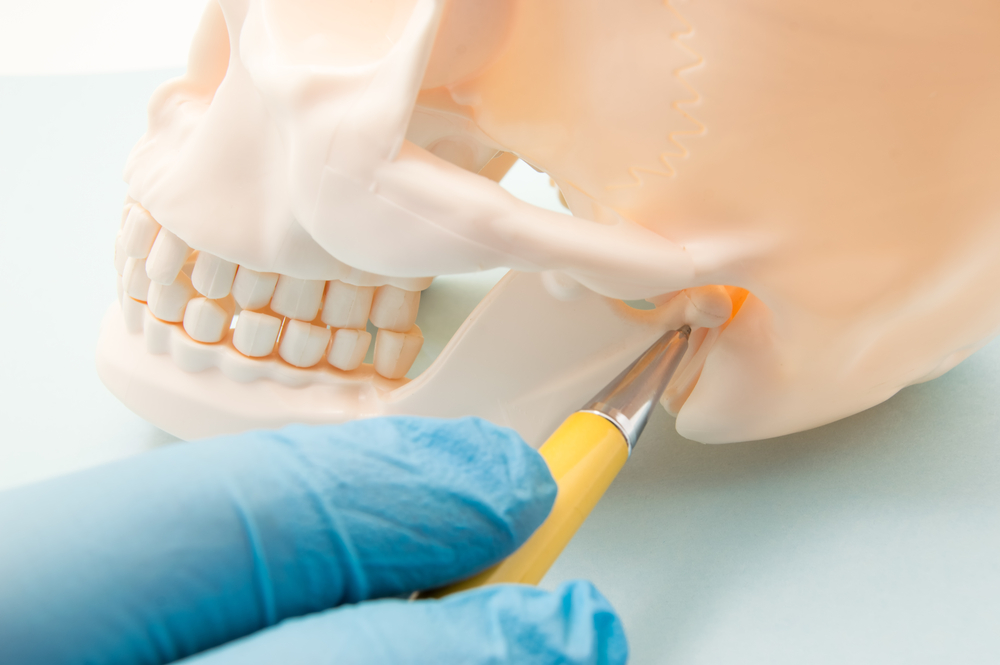
Temporomandibular joint disorders can interfere with an individual’s ability to speak, eat, and swallow with ease. Many patients are familiar with the jaw pain that accompanies TMJ disorder. But did you know that TMJ disorder has been linked to headaches and migraines? In fact, headaches are one of “the most common conditions” associated with temporomandibular disorder, according to the National Institutes of Health.
If you suffer from frequent or persistent headaches or migraines, Dr. Timothy Mickiewicz (Dr. Mick) can treat the underlying cause of your headaches: TMJ disorder. Read on to learn more about the connections between TMJ disorder and headaches.
TMJ Disorders and Headaches
TMJ-related pain and headaches commonly co-occur, according to the American Migraine Foundation. This is one reason why diagnosing the exact cause of your jaw pain or migraine requires an experienced doctor. Dr. Mick’s professional memberships with the American Academy of Dental Sleep Medicine and the American Academy of Craniofacial Pain allow him to accurately diagnose and treat TMJ disorder.
Dr. Mick will prescribe non-invasive treatments for TMJ disorder. The American Migraine Foundation supports this approach. According to the foundation, “simple and reversible treatments” should be advised over irreversible procedures. The American Migraine Foundation recommends five areas of focus for treatments:
- Education and self-care
- Cognitive/behavioral intervention
- Pharmacologic management
- Physical medicine techniques
- Surgery (last resort)
Dr. Mick’s philosophy aligns with many of the foundation’s approaches. We support proactive education and self-care. We encourage patients to take a proactive approach to reduce the risk of further damage to their jaws. Steps our patients can take include:
- Using meditation and biofeedback for stress reduction
- Use of cold packs
- Avoiding hard or crunchy foods
- Addressing teeth grinding
- Learning to chew foods evenly on both sides of the mouth
- Using over-the-counter pain medications and anti-inflammatory drugs
Dr. Mick offers four treatments for TMJ disorder: oral appliance, trigger point injections, physical therapy, and medication. An oral appliance is an alternative treatment to a CPAP machine. The device positions your jaws and tongue in a manner that allows for ease of breathing at night. Trigger point injections can place anesthetics near areas of discomfort. Anti-inflammatory drugs can also aid in reducing symptoms related to TMJ disorder.
Findings by the National Institutes of Health
Migraines are the 19th most common debilitating disease worldwide. Physical therapy is a simple, non-invasive treatment for TMJ disorder, according to the NIH. Mr. Mick works with a trained therapist who can provide personalized therapy to focus on muscle and joint movements. Physical therapy is particularly effective because the treatments can be implemented at home.
Benefits of Early Treatment
As the NIH noted, “early treatment of TMD is necessary to avoid” chronic pain. Dr. Mick’s 25 years of experience treating TMJ has informed him that early intervention and treatment leads to better health outcomes. The vast majority of TMJ cases can be successfully treated without surgery.
Patients who undergo treatments at our dental practice can benefit from:
- Reduction in TMJ-related pain
- Lower risk of bruxism
- Restored oral function
- Fewer earaches and headaches
- Restored comfort while eating
Schedule Your TMJ Disorder Consultation Today
We understand how difficult navigating TMJ disorder treatments can be. There is a myriad of treatment options and philosophies available. Dr. Mick emphasizes evidenced-based, conservative treatments. To schedule your next visit, contact our office online or call (916) 469-9178.


